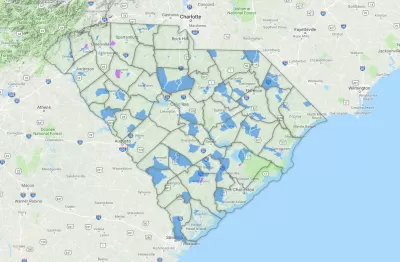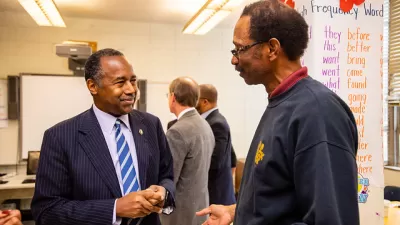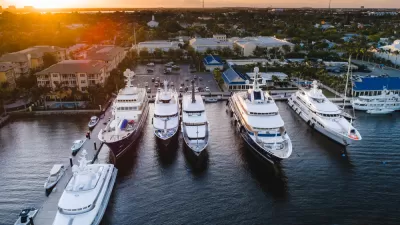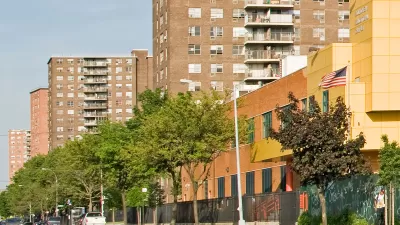Created to speed investment in struggling communities, the federal Opportunity Zones program could also spur research into how capital can be better deployed on a district-by-district basis.

A product of the GOP's 2017 tax reform bill, the federal Opportunity Zones program proposes to aid "struggling communities" (though there's been some debate on that score) by enabling greater redevelopment investment in specific census tracts. Here, Bruce Katz discusses why the program could spark more comprehensive research into how specific investments impact and interact with their wider environs.
Katz points to some of the common designations for urban districts: central business districts, anchor districts, residential areas, and the like. "For urban officials, practitioners, researchers or residents themselves, these archetypes are so settled that they rarely elicit discussion or debate. Yet the Opportunity Zone tax incentive enables us to think about each of these distinct areas as possible asset classes or investment sectors."
The Opportunity Zone framework, Katz says, is one way to see past the compartmentalization of urban finance. "At a minimum, the creation of Zone typologies could help motivate major institutions within different kinds of Opportunity Zones to consider how to realize their full economic impact."
See also: New Scrutiny for the Federal 'Opportunity Zones' Program
FULL STORY: Rethinking Capital and Geography

Planetizen Federal Action Tracker
A weekly monitor of how Trump’s orders and actions are impacting planners and planning in America.

Congressman Proposes Bill to Rename DC Metro “Trump Train”
The Make Autorail Great Again Act would withhold federal funding to the system until the Washington Metropolitan Area Transit Authority (WMATA), rebrands as the Washington Metropolitan Authority for Greater Access (WMAGA).

DARTSpace Platform Streamlines Dallas TOD Application Process
The Dallas transit agency hopes a shorter permitting timeline will boost transit-oriented development around rail stations.

Renters Now Outnumber Homeowners in Over 200 US Suburbs
High housing costs in city centers and the new-found flexibility offered by remote work are pushing more renters to suburban areas.

The Tiny, Adorable $7,000 Car Turning Japan Onto EVs
The single seat Mibot charges from a regular plug as quickly as an iPad, and is about half the price of an average EV.

Supreme Court Ruling in Pipeline Case Guts Federal Environmental Law
The decision limits the scope of a federal law that mandates extensive environmental impact reviews of energy, infrastructure, and transportation projects.
Urban Design for Planners 1: Software Tools
This six-course series explores essential urban design concepts using open source software and equips planners with the tools they need to participate fully in the urban design process.
Planning for Universal Design
Learn the tools for implementing Universal Design in planning regulations.
Municipality of Princeton
Roanoke Valley-Alleghany Regional Commission
City of Mt Shasta
City of Camden Redevelopment Agency
City of Astoria
Transportation Research & Education Center (TREC) at Portland State University
US High Speed Rail Association
City of Camden Redevelopment Agency
Municipality of Princeton (NJ)





























